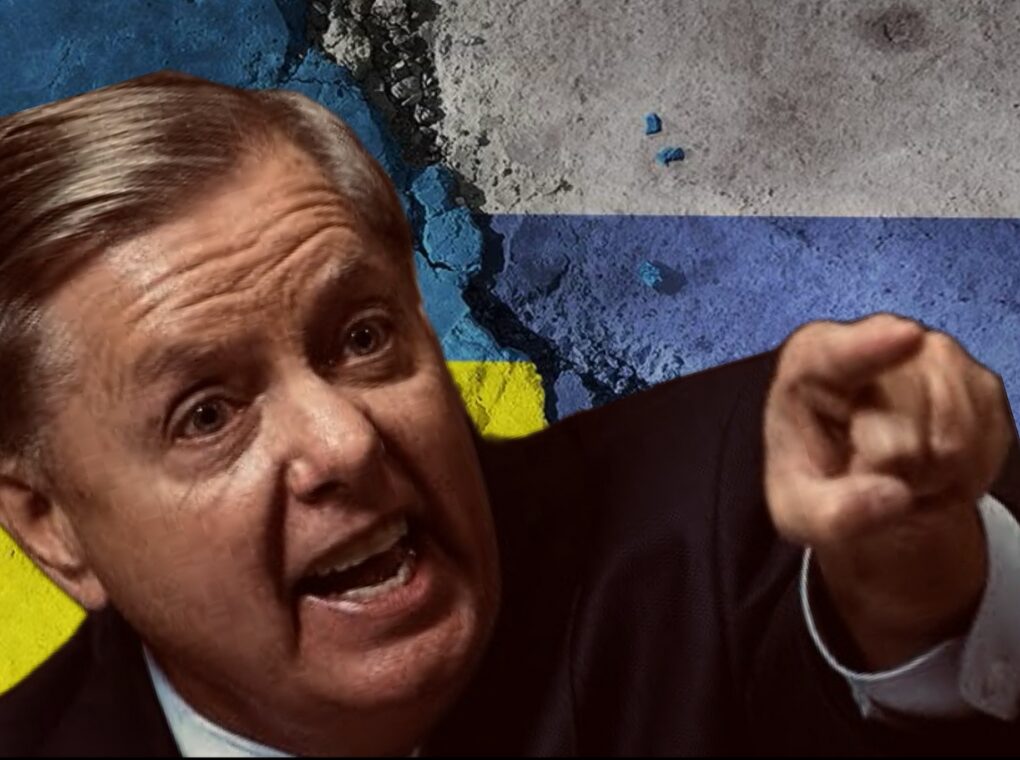Senator Lindsey Graham announced this week that he will push for legislation to classify Russia as a state sponsor of terrorism, citing what he described as one of the most egregious acts of the war in Ukraine—the abduction of thousands of Ukrainian children.
The Allegation: Forced Removal of Children
According to Ukrainian authorities and international investigators, Russia has forcibly transferred more than 19,000 Ukrainian children from occupied territories into Russia since the February 2022 invasion. Many have reportedly been placed in camps or adopted by Russian families. For Senator Graham, this practice represents “a despicable and barbaric act” worthy of the strongest diplomatic and economic punishment available under U.S. law.
“Stealing children from their home country is a despicable and barbaric act. As I have been saying since earlier this year, I intend to push legislation to designate Russia a state sponsor of terrorism under U.S. law if they do not return the children. This designation will make doing business with Putin’s Russia radioactive for other countries and businesses,” Graham said in his announcement.
Moscow’s mass abduction of Ukrainian children hit the headlines once again in early August amid reports that the Russian authorities had published an online catalog of Ukrainian children available for adoption. The database, which features photos, names, and descriptions of almost three hundred Ukrainian minors, was condemned as further evidence of the Kremlin’s state-sponsored campaign to kidnap young Ukrainians and send them to Russia.
Why the Designation Matters
Being labeled a state sponsor of terrorism carries sweeping repercussions. It would isolate Russia even further from global finance, trigger stronger trade restrictions, and expose Moscow to lawsuits in U.S. courts. Few countries hold this status—currently Iran, North Korea, Syria, and Cuba—but the label is considered one of the harshest measures in Washington’s foreign policy arsenal.
For businesses and governments still maintaining limited ties with Russia, Graham’s proposal would raise the costs dramatically, amplifying the message that engagement with the Kremlin is “radioactive.”
Ukraine’s Reactions and Wider Pressure
Ukrainian President Volodymyr Zelensky, in his evening address, welcomed stronger international measures. He stressed that “Russia must be pressured to end the war,” adding that “Putin understands nothing but force and pressure.” Kyiv has consistently asked Washington to adopt the terrorism designation, arguing that Russia’s deliberate attacks on civilians, coupled with alleged war crimes like the deportation of children, clearly meet the criteria.
Strategic Implications
The move highlights a growing consensus on Capitol Hill to treat Russia not only as a geopolitical adversary but as a rogue state acting outside the boundaries of international law. However, the designation also comes with risks. It could permanently close remaining diplomatic channels between Washington and Moscow, complicating future talks on ceasefires, prisoner exchanges, or arms control. Some U.S. allies in Europe, while supportive of tougher penalties, may fear long-term diplomatic deadlock.
In March 2023, the International Criminal Court in The Hague issued an arrest warrant for Russian President Vladimir Putin for his personal role in the mass abductions. While there is little chance of Putin being prosecuted for war crimes in The Hague, the arrest warrant has proved hugely embarrassing for Russia and has made it difficult for the Kremlin dictator to travel internationally, as ICC member countries are now technically obliged to arrest him. This has prevented Putin from attending annual BRICS summits in South Africa and Brazil in recent years.
Putin’s fears of possible arrest for his involvement in the mass kidnapping of Ukrainian children may have influenced the choice of Alaska as the location for Trump-Putin summit. The United States has not signed up to the ICC and is therefore under no obligation to detain the Russian leader. Alaska borders Russia itself and can be reached without crossing the airspace of ICC member states, making it a particularly suitable venue from Putin’s perspective.
Senator Graham’s announcement underscores a turning point in U.S. policy debates surrounding Russia. By grounding his proposal in the abduction of Ukrainian children, he frames the conflict not just as a war of territory, but as a moral struggle with profound humanitarian stakes. If the legislation gains momentum, it would mark one of the sharpest escalations in how the United States officially characterizes its adversary—redefining Russia not just as an aggressor, but as a state aligned with terrorism.
